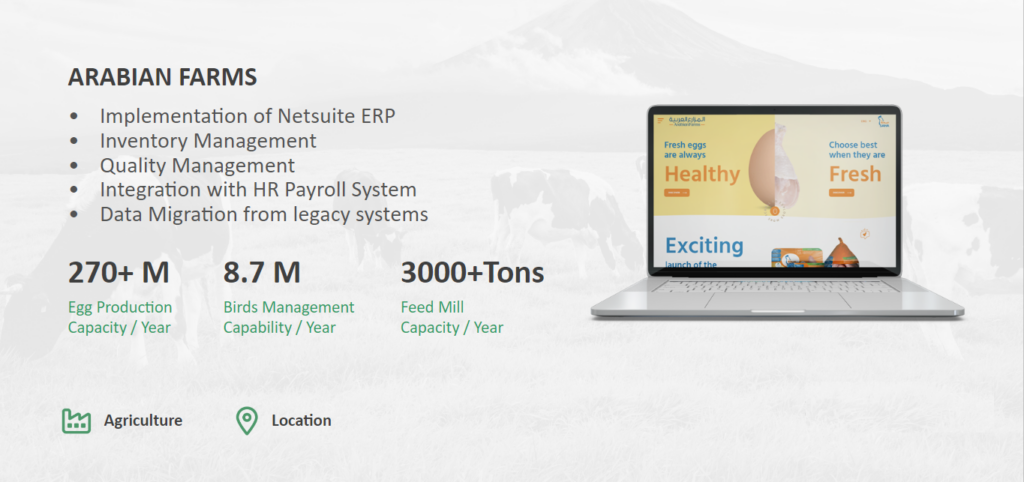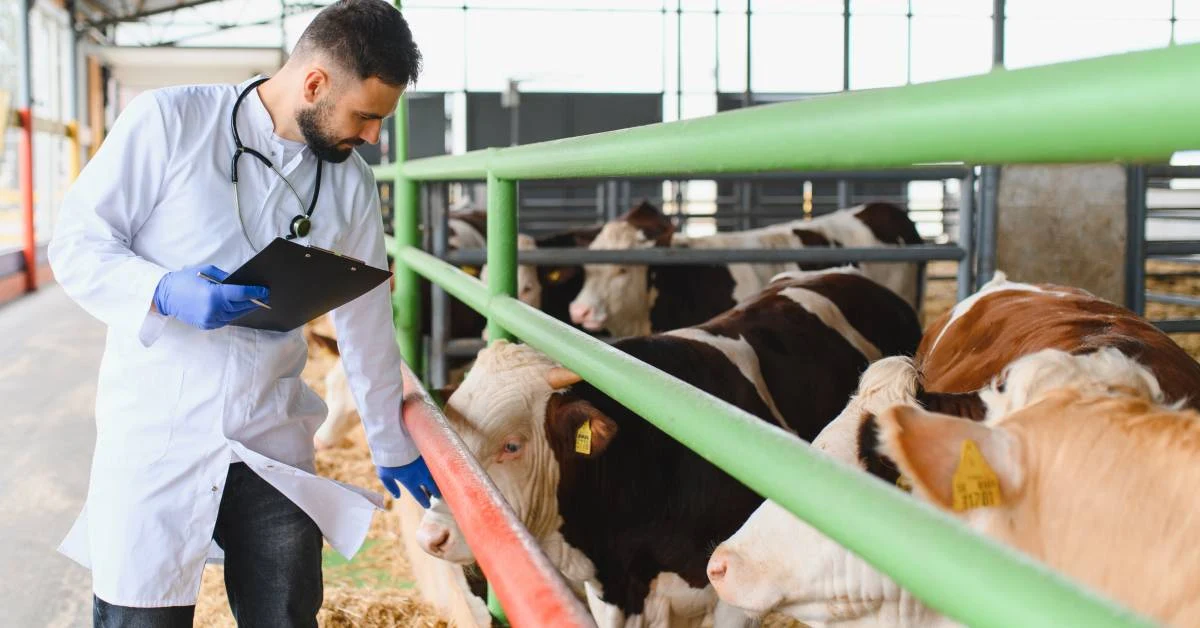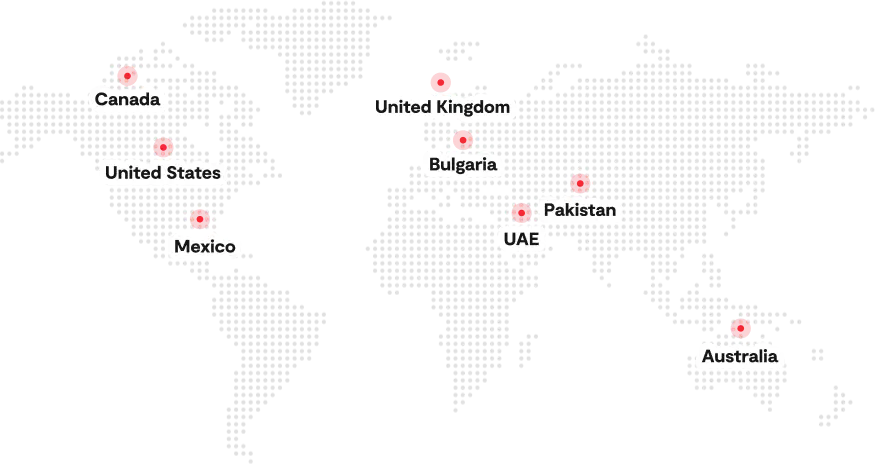The backbone of any successful poultry operation lies in its breeding stock. Breeder farms specialize in raising parent birds specifically chosen for their superior genetics. These birds produce fertile eggs that hatch into the next generation of laying hens or meat birds that drive the entire poultry industry.
Effective flock development through breeder farming goes beyond simply raising healthy birds. By implementing strategic breeding practices, you can significantly improve the overall performance of your offspring.
This translates into benefits like increased egg production, faster growth rates, and improved meat quality, all leading to a healthier bottom line. However, achieving flock development excellence requires a meticulous approach.
Folio3 Agtech poultry management software steps in as your comprehensive solution. Folio3 goes beyond basic record-keeping, offering a suite of tools designed to empower breeder farmers.
In this blog, let’s delve into proven breeder farming strategies and explore how Folio3 can help you implement them to achieve superior flock development.
Understanding Breeder Farming
Breeder farming is a specialized branch of poultry production focused on raising parent stock. Unlike broiler farms that raise chickens for meat or layer farms that produce table eggs, breeder farms prioritize genetic improvement, health management, and production efficiency for their birds.
Here’s a breakdown of breeder farming’s core aspects:
- Definition: Breeder farms house breeding hens and roosters specifically chosen for their superior genetics. These birds are mated naturally or artificially to produce fertile hatching eggs.
- Purpose: The sole purpose of breeder farms is to generate high-quality hatching eggs that hatch into healthy chicks with desirable traits. These chicks then become the next generation of laying hens or broiler chickens that supply the poultry industry.
Key Goals of Breeder Farming
- Genetic Improvement: Breeder farms meticulously select breeding stock based on desired traits like egg production, growth rate, feed conversion efficiency, and disease resistance. This continuous selection process over generations leads to steady genetic improvement in the offspring.
- Health Management: Maintaining optimal health in the breeding flock development is paramount. Breeder farms implement strict biosecurity measures, vaccination programs, and proper nutrition to ensure the parent stock remains healthy and produces high-quality, fertile eggs.
- Production Efficiency: Breeder farms strive for optimal egg production while maintaining bird health and welfare. This includes creating ideal housing conditions, proper lighting schedules, and providing a nutritious diet to maximize fertile egg production throughout the breeding cycle.
Breeder Farming vs. Other Poultry Farming
- Broiler Farms: These farms raise chickens specifically for meat production. They purchase day-old chicks from hatcheries hatched from eggs laid by breeder hens. Broiler farms focus on rapid growth and achieving market weight in a short period.
- Layer Farms: Layer farms house laying hens that produce table eggs for human consumption. While some layer farms may raise their replacement hens, many purchase pullets (young hens) from hatcheries that source their hatching eggs from breeder farms.
Importance of Flock Development in Breeder Farming
Just like a strong foundation is essential for a sturdy building, effective flock development is the cornerstone of successful breeder farming. It’s not just about raising healthy birds; it’s about strategically nurturing a flock that consistently produces offspring with superior traits.
Here’s how a focus on flock development pays dividends for breeder farmers:
- Genetic Diversity and Selection: A flock development boasts a healthy level of genetic diversity. This diversity provides a broader pool of desirable traits to select from during breeding. Breeder farmers can then strategically choose the breeding stock that excels in specific areas like egg production, disease resistance, or feed conversion efficiency. Over generations, this selective breeding leads to continuous genetic improvement in the offspring, ensuring they consistently meet or exceed industry standards.
- Enhancing Production Traits: Effective flock development goes beyond genetics. It encompasses practices that optimize the overall health and well-being of the breeding birds. This translates into tangible benefits for the offspring. By implementing proper nutrition, ideal housing conditions, and preventive healthcare measures, breeder farmers can significantly enhance production traits in their chicks. This can include improved egg quality, higher hatchability rates, and faster growth rates in the next generation.
- Sustainability and Profitability: Investing in flock development isn’t just about short-term gains. It’s a strategic approach that ensures the long-term sustainability and profitability of your breeder farm. By producing chicks with superior production traits, you contribute to a more efficient poultry industry overall. This, in turn, leads to a more sustainable food system and allows you to command a premium for your high-quality hatching eggs. Additionally, healthy flocks with optimized production require fewer resources and generate less waste, further contributing to your farm’s long-term sustainability.
Key Breeder Farming Strategies for Flock Development Excellence
Having established the importance of flock development, let’s delve into the practical strategies that breeder farmers can implement to achieve excellence. Here, we’ll explore seven key areas and how Folio3 Agtech poultry farm software empowers you to translate these strategies into actionable steps:
1. Genetic Selection and Breeding Programs
- Selecting High-Quality Breeding Stock: The foundation of any breeding program lies in selecting parent stock with superior genetics. Breeders should focus on traits relevant to their target market, such as egg production, growth rate, or disease resistance.
- Importance of Genetic Diversity: Maintaining a healthy level of genetic diversity within the flock is crucial. This allows for a broader pool of desirable traits to choose from during breeding. Folio3 can assist by tracking lineage and bloodlines, ensuring genetic diversity is maintained.
- Utilizing Genetic Data for Informed Breeding Decisions: Advancements in genetic testing provide valuable data on specific traits. Folio3 helps integrate this data with other flock development information, allowing breeders to make informed decisions about breeding pairs and future generations.
2. Health and Biosecurity Management
- Common Health Issues in Breeder Flocks: Breeder flocks are susceptible to various diseases like avian influenza, Newcastle disease, and Marek’s disease. Proactive health management is essential.
- Implementing Effective Vaccination and Disease Prevention Programs: Vaccination programs and preventive measures like hygiene protocols minimize the risk of outbreaks. Folio3 aids in tracking vaccination schedules, monitoring flock health, and identifying potential issues early.
- Biosecurity Measures: Biosecurity encompasses practices that prevent the introduction and spread of diseases. This includes facility hygiene, visitor control, and pest management. Folio3 can track biosecurity protocols and ensure their consistent implementation.
3. Nutrition and Feeding Programs
- Nutritional Requirements for Breeder Flocks: Breeder birds have specific nutritional needs for optimal health and reproduction. These needs differ from those of broiler chickens or laying hens.
- Designing Balanced Feed Formulations: Providing a balanced diet rich in essential vitamins, minerals, and protein is crucial. Folio3 allows for customized feed formulations based on the flock’s specific needs and stage of production.
- Monitoring Feed Intake and Adjusting Diets: Regularly monitoring feed intake and adjusting diets based on performance data ensures optimal nutrient utilization. Folio3 facilitates this process by tracking feed consumption and production metrics.
4. Environmental Management
- Optimal Housing Conditions: Environmental factors like temperature, ventilation, and lighting significantly impact bird health and reproductive performance.
- Reducing Stress Through Proper Environmental Control: Stress can negatively affect egg production and hatchability. Creating a comfortable, controlled environment with proper ventilation and lighting minimizes stress. Folio3 provides tools to monitor and regulate key environmental parameters within the breeder houses.
- Impact of Environmental Factors on Reproductive Performance: Maintaining optimal temperature, humidity, and light cycles is essential for proper reproductive development and egg quality.
5. Record Keeping and Data Analysis
- Importance of Detailed Record-Keeping in Breeder Farming: Detailed record-keeping is vital for tracking flock performance and identifying areas for improvement. Records should encompass health, production, genetics, and environmental data.
- Types of Records: Breeders should maintain records on bird health, egg production, fertility rates, hatchability, feed consumption, environmental conditions, and genetic information.
- Data Analysis for Continuous Improvement: Regularly analyzing flock data allows breeders to identify trends, assess performance against benchmarks, and make adjustments to optimize production. Folio3 offers a comprehensive data management system with analysis tools to support continuous improvement.
6. Breeder Flock Performance Monitoring
- Key Performance Indicators (KPIs) for Breeder Flocks: Several key performance indicators (KPIs) track breeder flock performance, including egg production rate, fertility rate, hatchability rate, chick quality, and feed conversion ratio.
- Regular Performance Assessments and Benchmarking: Regular performance assessments and benchmarking against industry standards help identify areas for improvement. Folio3 facilitates real-time performance tracking with customizable dashboards and reports.
- Using Performance Data to Make Strategic Adjustments: Analyzing performance data allows breeders to make strategic adjustments to breeding programs, nutrition, or environmental management to optimize flock performance.
7. Reproductive Management
- Techniques for Improving Fertility and Hatchability: Techniques like artificial insemination, proper breeding ratios, and monitoring sperm quality can improve fertility and hatchability rates.
- Managing Breeding Cycles and Mating Ratios: Managing breeding cycles and maintaining optimal mating ratios ensures efficient egg production and chick quality. Folio3 aids in monitoring reproductive performance and allows for adjustments to breeding strategies.
- Monitoring and Improving Egg Quality: Egg quality directly impacts hatchability. Breeders monitor shell thickness, internal quality, and egg weight. Folio3 can track egg quality parameters and identify potential issues.
Addressing Common Breeder Problems and Solutions
Even with the best planning, breeder farms can face challenges that impact flock performance. Here, we’ll explore some common problems, proactive strategies for addressing them, and how Folio3 Agtech poultry management software empowers you to navigate these hurdles.
Common Breeder Problems
- Disease Outbreaks: Disease outbreaks can devastate a flock, leading to significant mortality, reduced egg production, and poor chick quality.
- Low Hatchability: Low hatchability rates signify a problem in the breeding process. This could be due to factors like poor egg quality, low fertility, or improper incubation conditions.
- Genetic Defects: Unintended genetic defects passed on through breeding can lead to health problems, reduced performance, or deformities in offspring.
Strategies for Problem-Solving
- Early Detection is Key: The sooner a problem is identified, the faster corrective actions can be taken. Regular monitoring of flock health, egg quality, and performance metrics is crucial for early detection.
- Corrective Actions: The specific corrective actions will depend on the identified problem. Disease outbreaks may require quarantine measures, treatment protocols, and vaccination updates. Low hatchability might necessitate investigating breeding practices, egg quality, or incubation conditions. Addressing genetic defects often involves adjusting breeding programs to minimize the spread of undesirable traits.
Case Studies/Examples
Folio3’s impact extends beyond theoretical strategies. Take Arabian Farms, a leading poultry producer, for example. Folio3’s implementation helped them achieve complete oversight of their operations and streamlined communication across departments. This enhanced efficiency and allowed Arabian Farms to leverage their existing systems to their full potential.

How Does Folio3 Agtech Support Problem Identification and Resolution?
- Real-time Data Tracking: Folio3 provides real-time tracking of key performance indicators (KPIs) like egg production, hatchability, and bird health. This allows for early detection of potential issues.
- Alerts and Notifications: Customizable alerts can be set within Folio3 to notify breeders of any unusual changes in flock performance or environmental parameters.
- Data Analysis and Reporting: Folio3’s data analysis tools help breeders identify trends and pinpoint the root causes of performance issues. This facilitates targeted corrective actions.
- Historical Data for Comparison: Folio3 allows breeders to compare current performance against historical data and industry benchmarks, highlighting areas for improvement.
Benefits of Using Folio3 Agtech Poultry Management Software
So far, we’ve explored the importance of flock development and the key strategies to achieve it. Now, let’s delve into how Folio3 Agtech poultry management software empowers breeder farmers to translate these strategies into actionable results.
Folio3 goes beyond basic record-keeping, offering a comprehensive suite of tools designed to streamline all aspects of breeder farm management. Here’s how Folio3 can elevate your operations:
- Unparalleled Management Capabilities: Folio3 provides a centralized platform to manage every crucial aspect of your breeder flock. From health monitoring and biosecurity protocols to nutrition planning and environmental control, Folio3 offers a single source of truth for all your breeder farm data.
- Real-Time Insights and Actionable Analytics: Timely data is key to informed decision-making. Folio3 provides real-time access to critical performance metrics. This allows you to identify trends, anticipate potential issues, and make data-driven adjustments to optimize flock performance.
- Customization for Individual Needs: No two breeder farms are identical. Folio3 understands this. The software offers customizable features that can be tailored to your specific breeding goals, flock size, and operational setup. This ensures that poultry software seamlessly integrates into your existing workflows and management style.
With the help of these core functionalities, Folio3 Agtech empowers breeder farmers to:
- Enhance flock health and biosecurity
- Optimize nutrition and feeding programs
- Maintain optimal environmental conditions
- Implement effective breeding programs
- Track and analyze key performance indicators (KPIs)
- Make informed decisions for continuous improvement
Conclusion
Achieving flock development excellence is the cornerstone of successful breeder farming. By implementing proven strategies like genetic selection, health management, and environmental control, breeder farmers can produce high-performing chicks that contribute to a sustainable and efficient poultry industry.
Agtech Folio3 software equips you with the tools to translate these strategies into actionable steps. With its comprehensive management capabilities, real-time data insights, and customizable features, Folio3 empowers you to optimize every aspect of your flock’s development, ultimately leading to a thriving and profitable breeder farm operation.
FAQs
What Are the Biggest Challenges Faced by Breeder Farms?
Disease outbreaks, low hatchability rates, and genetic defects can significantly impact a breeder farm’s profitability. Early detection and corrective actions are crucial.
How Can Technology Improve Breeder Farm Operations?
Poultry management software like Agtech Folio3 offers real-time data tracking, customizable alerts, and comprehensive data analysis to identify problems early and optimize flock performance.
What Are the Benefits of Using Folio3 Agtech Software?
Folio3 provides a centralized platform for managing breeder flocks, with features for health, breeding, nutrition, and environment. It offers real-time data insights and customizable tools to improve decision-making and flock development.







